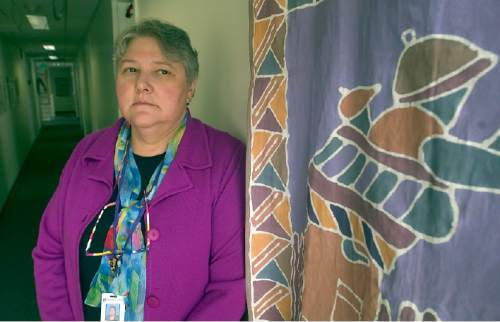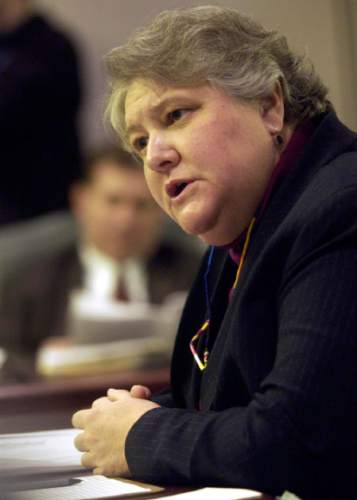This is an archived article that was published on sltrib.com in 2016, and information in the article may be outdated. It is provided only for personal research purposes and may not be reprinted.
A 4-year-old Utah law requiring women to wait 72 hours for an abortion has little effect on their decision but is costly and inconvenient, shows research released Thursday.
An anonymous foundation paid for the study from the University of Utah and the University of California, San Francisco.
The takeaway is that women who make an appointment for an abortion have already made a final decision, contends Planned Parenthood's national leader and its Utah director.
"This study found that too often, a woman in need of an abortion in Utah must scramble" said Cecile Richards, president of Planned Parenthood Federation of America, in a prepared statement.
To end the pregnancy, researchers found, women often must find more money for the procedure, set up travel and arrange childcare. They end up waiting more than a week for the appointment after an initial information session.
But Rep. Steve Eliason, the Sandy Republican whose 2012 measure made Utah the first state to enact a 72-hour wait period, says any extra consideration women take during the three-day window is beneficial. His bill tripled the previous wait time of 24 hours.
"The one thing that nobody can deny," Eliason said Friday, "is that it gives women making an extremely difficult decision a bit more time to ponder their choice."
Eliason says the time frame mirrors the wait period for another irreversible decision, vasectomies, and also for mortgages. The undisclosed funding source, he said, makes him skeptical of the findings.
Eliason notes that from 2012 to 2013, the rate of abortions in Utah dropped, though he concedes the law may not be the cause. The rate had been flat the year before, show data from the state health department.
Galloway has said better family planning and long-term contraception may be the reason for the downturn.
For the study, researchers issued surveys to 500 women at Utah clinics at their initial appointment and spoke to about 300 by phone three weeks later.
Eighty-six percent had an abortion by the time of the follow-up call, and 8 percent stopped seeking the procedure. Study participants waited an average of eight days between the first visit and the abortion.
Participants rated the amount of internal conflict they felt about the initial decision on a 1-100 scale. The average was 13.9 for women who eventually had the abortion; women who ultimately opted against it or were still deciding rated their conflict at an average of 28.5.
The study authors recommended that instead of requiring women to wait three days, the state might better help women by providing counseling for patients who are feeling conflicted or unsure at the time of their first visit.
The findings, Planned Parenthood Association of Utah CEO Karrie Galloway said in a prepared statement, "are deeply concerning — but unfortunately they aren't surprising." The statement continues: "We know this law was never really about empowering a woman in Utah with the information she needs to make her own decision about her pregnancy, it has always been about making a safe and legal abortion more difficult to get."
Since 2012, four other states have passed 72-hour mandates, including Missouri, North Carolina and Oklahoma. After lawmakers passed a similar bill in South Dakota, a court blocked the law from going into effect.
@anniebknox







